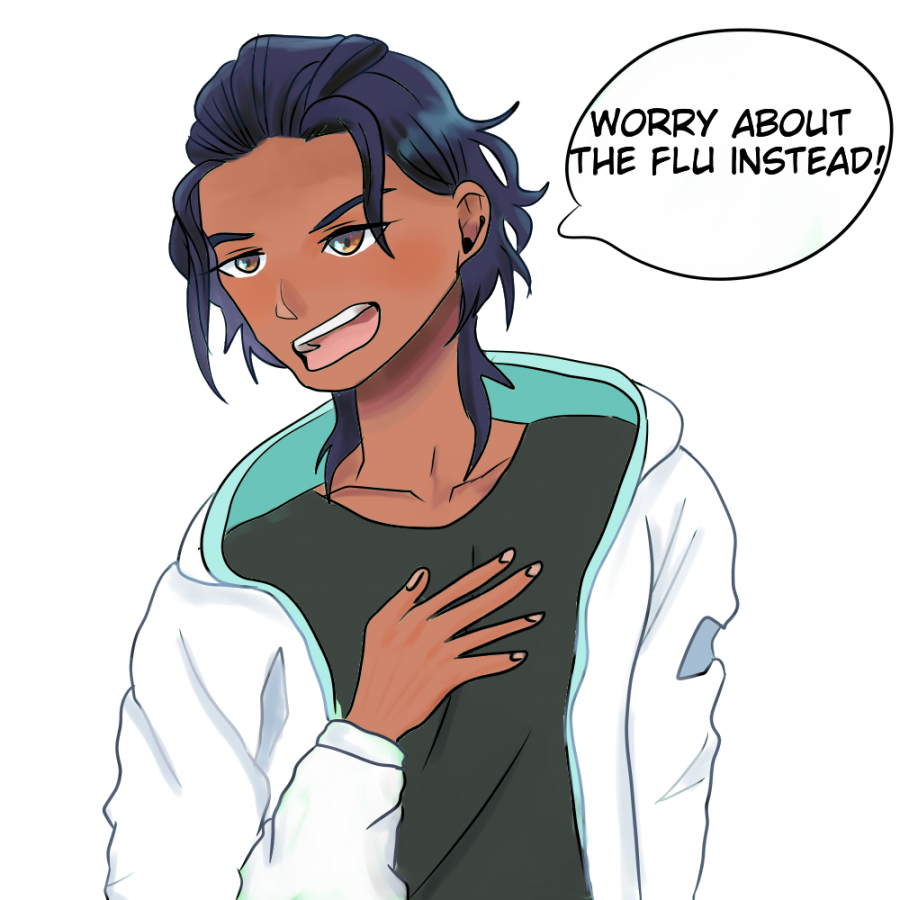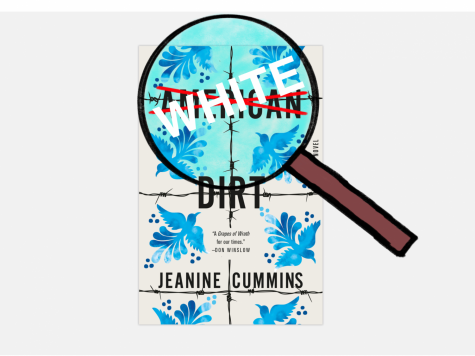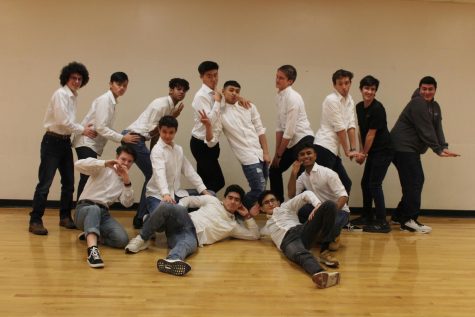No, social media contributes to an unnecessary hysteria
The common flu has a higher death toll than the novel coronavirus (COVID-19).
February 24, 2020
Ebola, SARS, the swine flu: these diseases have all been a source of international fear at one point. When a massive outbreak occurs, the media obsessively covers it for some time before moving onto fresher news. The new hysteria this time around is the COVID-19, otherwise known as coronavirus, with constant coverage by social media, news outlets, and newspapers that primarily provide clickbait.
Sophomore Eugene Kimelman said, “I don’t see why it’s such a hysteria in the U.S. Until we find a way to deal with it, it’s a good idea to be careful, but what people are saying now is ‘oh my god we’re going to die,’ but we’re not.” The Center of Disease Control have even announced that the outbreak is not a threat to the average American.
To put the coronavirus in context, in 2015, Ebola was the new disease everyone was frantic about, and hundreds of news stories covered the latest updates on the disease though the news naturally died down. Even though Ebola is still an issue in some African countries, people have naturally moved on from the incident as it no longer pertains to their daily life. The same cycle is happening with the coronavirus where people in the US are in hysteria when they have no reason to be.
The novel coronavirus is a serious illness, however, but the media is blowing the problem out of proportion, causing more harm than benefits. The virus is mostly contained in Wuhan, China by quarantine, and hospitals are working day and night to treat patients. Precautionary measures have also been taken in various countries to screen possible infected people and to bring back citizens of their own. Even with all these precautions, the media only wants to emphasize the negative aspects of the virus instead of assuring readers that there isn’t any significant cause for alarm.
These irrational fears are also due to a lack of information on the novel virus. Due to this, there has been a vast spread of misinformation in the media which causes people to question whether or not what they know is true. Sophomore Rebecca Halper said, “I think it depends on where the media is getting their information from because if it’s from some random person’s social media then that’s not reliable. The media is just trying to stir people up.”
This has already occured when a twitter user shared a video that stated the virus could have spread from bat soup which is supposedly “a delicacy” in Wuhan. This video has been confirmed false as it was not even filmed in China, and the soup is not considered a delicacy in the region.
Unfortunately, so much emphasis has been put on where the virus originated from that it has begun to be associated with Chinese people. An article from PRWeek states, “Where most countries in the throngs of a crisis…people attract sympathy and well-wishes online, Chinese people have been subjected to racism and xenophobia.” According to this article as well as one from The Globe and Mail, many shops in Japan and Korea have prohibited Chinese people from entering and some Chinese have reported being shunned on the streets. Rather than providing sympathy, people have taken a disdain toward the Chinese because of how the media is portraying the virus.
By constantly adding words like “quarantine” and “outbreak” in the headlines of the virus articles, the media has placed an incredibly negative connotation on the problem regardless of who it hurts. Even students at RM are being impacted by this issue. Sophomore Elizabeth Mai said, “I was in Orange County, California, which has a high Asian population, for the Lunar New Year. When we were coming back, half of the plane had masks on. And there was this one white family who would give my mom this look whenever she coughed. No one said anything but you could see it in their eyes.” Even though the virus does not intentionally target a certain ethnicity, an irrational fear has arisen that anyone who has Asian features could potentially have the disease.
The severity of the coronavirus shouldn’t be downplayed and it doesn’t hurt to take some modest precautions, but don’t fall into the hysteria because it will only worsen it. Widespread panic will do more harm than good and will cause people to focus only on themselves instead of trying to help those who actually need it. Just because the coronavirus is so prevalent in the news does not mean the virus is at your doorstep.












